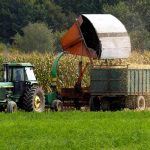Farmland has risen in value at an average rate of 3.4 per cent a year since 1850 in the UK, and at an average of 6.2 per cent since 1967. Farm prices in the US have risen by 150 per cent in real terms over the past century. Some well-known private investors such as Jim Rogers, and some big institutional funds such as America’s TIAA-CREF, are moving billions into purchase of farmland in low-risk nations such as the US, Australia and Canada, and higher-risk areas in South America and East Europe.
Trouble is, farmland is essentially a long-term investment and very illiquid – relatively so, even if done through funds.
Selecting suitable farms in which to invest requires highly professional expertise that includes knowledge of local climatic conditions, soils, water, local tenant markets and infrastructure (road, storage/refrigeration facilities).
“Investing in land, particularly in developing countries, can be fraught with non-financial risk such as discovering that the title to the property is not straightforward, political and legal issues around foreign ownership, and even ethical issues around the treatment of the land’s former occupants,” FTfm reported recently.
Some funds own farms but don’t operate them, their business model focused on leasing land to farmers. Other collective vehicles, such as listed companies, do operate the estates they own, producing crops such as beef cattle, dairy products, grain, sugar and vegetable oils.
Another important investment category is shares of companies that provide inputs such as farm machinery, seed, fertilizers, and processing and marketing services. Some of them are very large and truly global in their operations, such as Deere, Monsanto, Potash Corp., Bunge.
A much shorter-term play is to speculate on the crops themselves. There has long been a very active, broad and relatively cheap market in derivatives in soft commodities of all kinds. You could invest in a basket of futures that you keep rolling over, or commodity certificates listed on stock exchanges.
There are global agriculture funds on offer from investment houses that focus on different kinds of food-related assets such as farmland, agribusinesses, the commodities themselves. Among the best performers over the past five years have been Allianz Global Agricultural Trends, First State Global Agribusiness and Schroder Alternative Solutions Agriculture.
However, none has done that well. You would almost certainly have done better in a self-selected balanced basket of shares of listed companies.
This article follows on from Basic food crops evolved and is part of the series that started with
CopyRight – OnTarget 2012 by Martin Spring







